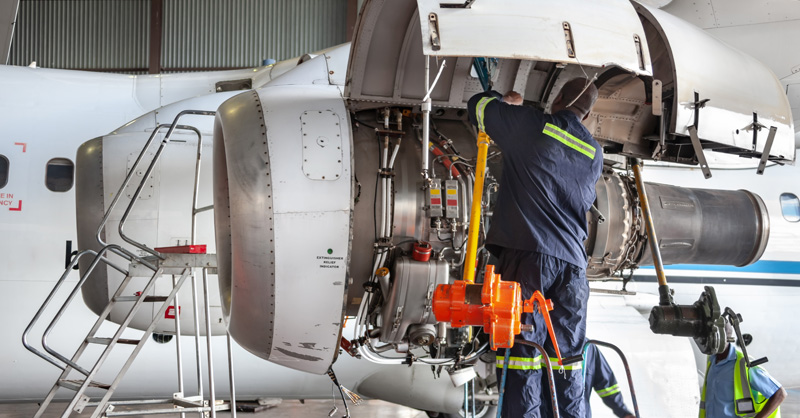Overview
Global aviation currently contributes approximately 2% of greenhouse gas emissions; the projected growth in global aviation will create annual CO2 emissions of 1.8 billion tons by 2050. Consequently, the sector has made a commitment to achieve net-zero carbon emissions by 2050.
Government policy strategies such as the Aerospace Sector Deal, Jet Zero and Destination Zero focus on sustainable aviation fuel and aircraft efficiency for the transition to zero emission flight. Although, attention to the whole aircraft life cycle including design, manufacture and recovery has been relatively lacking.
This project sought to support SMEs in the aerospace manufacturing industry by exploring remanufacturing business models, a form of Circular Economy Business Model (CEBM), to help them move towards a sustainable future.
Embracing the ‘Circular Economy’ can minimise the consumption of finite resources as well as the production of waste and emissions. CEBMs, which are often represented as R-imperatives or R-models, can not only contribute to sustainability but also to business model innovation by extending the value proposition to value recreation, redelivery, and recapture.
This project conducted case studies of five SMEs in the UK aerospace industry to explore:
- The extent of their current practice of, and plans for, remanufacturing
- Barriers they face in their current or potential remanufacturing business models
- Drivers for them to engage with a more sustainable business model
Find out more and download the full report below.
This research was conducted by Dr Rachael Lamb (University of Bristol), Dr Eun Sun Goodwin (University of Wolverhampton), Dr Michael Rogerson (University of Sussex) and Dr Alisha Tuladhar (University of Surrey). This work was supported by the UKRI Made Smarter Innovation Challenge and the Economic and Social Research Council via InterAct [Grant Reference ES/W007231/1].
Please complete the captcha to download the file.
Download “Remanufacturing in the Aerospace Industry” Remanufacturing-in-the-Aerospace-Industry.pdf – Downloaded 3 times – 690.45 KB









